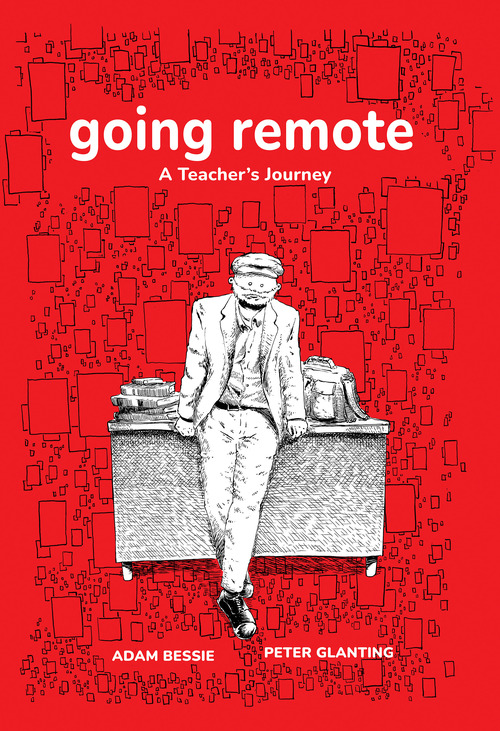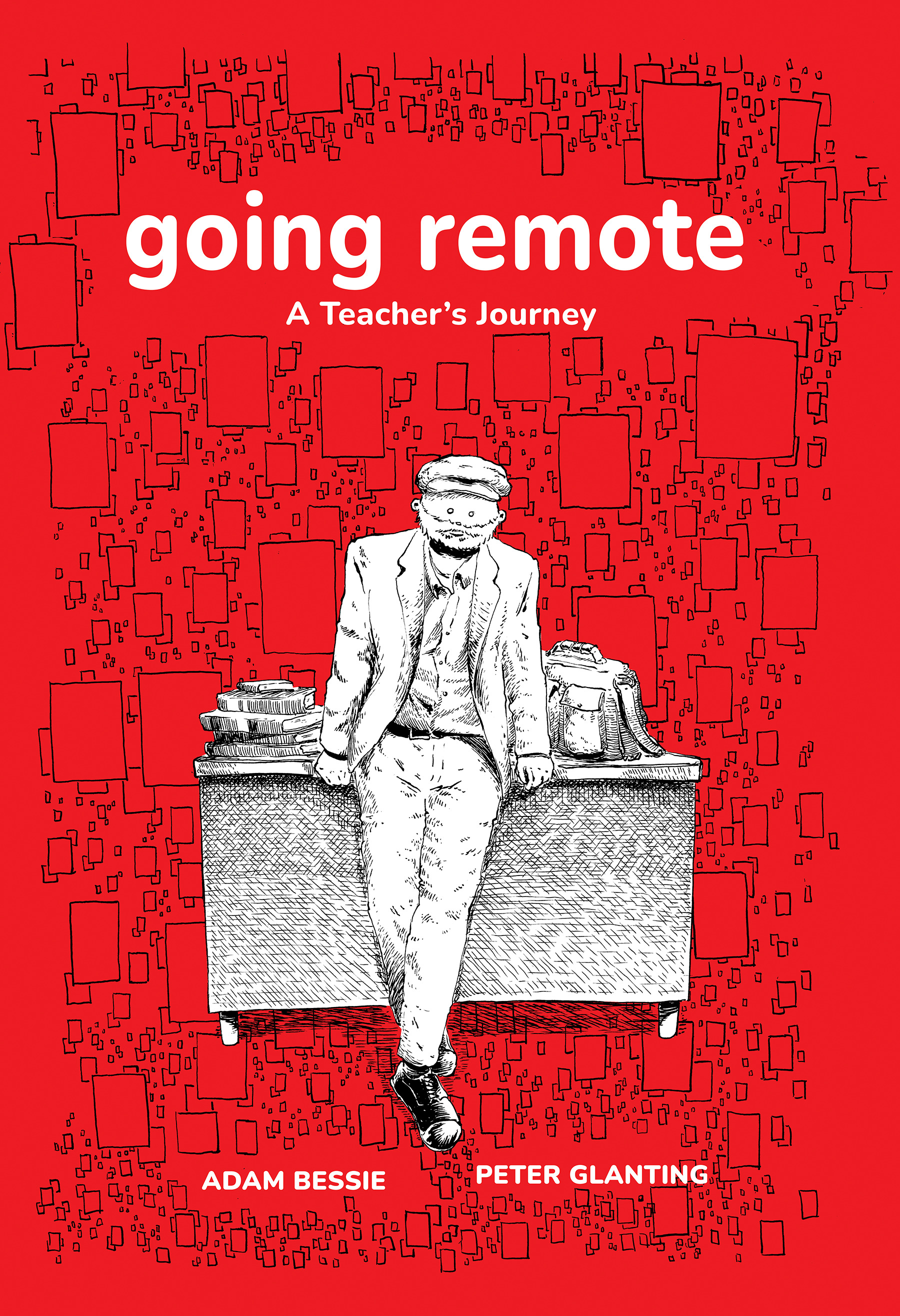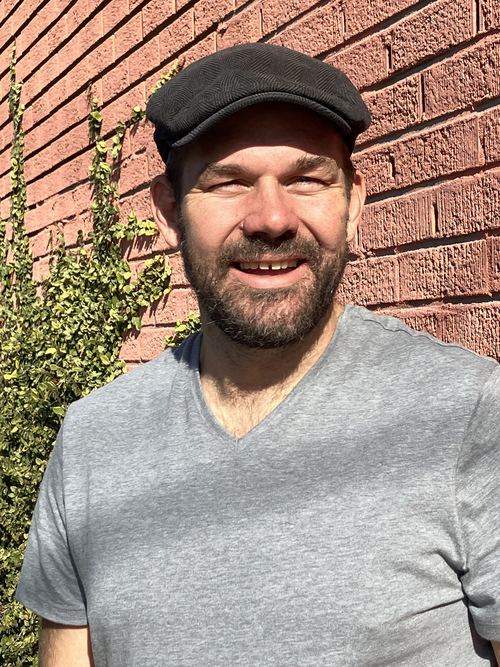A searingly honest graphic memoir dispatch from a community college professor who cares deeply for his students and family while also combating personal health issues from the frontlines of public education during the pandemic.
Going Remote is a joint production of The Censored Press and Seven Stories Press.
With Peter Glanting’s powerful illustrations, author Adam Bessie, an English professor and graphic essayist, uses the unique historical moment of the COVID-19 pandemic as a catalyst to explore the existing inequalities and student struggles that plague the public education system. This graphic memoir chronicles the reverberations from the onset of the pandemic in 2020 when students and educators left their physical classrooms for remote learning. As a professor at a community college, Bessie shows how despite these challenges, teachers work tirelessly to create a more equitable educational system by responding to mental health issues and student needs.
From the Black Lives Matter protests to fielding distressed emails from students to considering the future of his own career, Going Remote also tells the personal story of Bessie’s cancer diagnosis and treatment during the pandemic. A fusion of memoir, meditation, and scholarship, Going Remote is a powerful account of a crisis moment in educational history demonstrating both personal and societal changes.
Includes back matter revealing the literary and theoretical touchpoints that inform Going Remote (works by Octavia Butler, Neil Postman, Jaron Lanier, and Diane Ravitch).
Wednesday, June 7 @ 6:00 PM
Books, Inc. Berkeley
1491 Shattuck Ave, Berkeley, CA 94709
Join...
Sat., June 24, 2023 at 11:00am PT
Book Passage Corte Madera
51 Tamal Vista Blvd, Corte...
Abby Martin: Foreword to “Guilty of Journalism”



